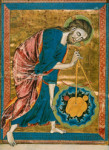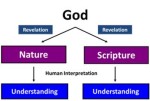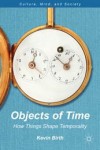In my last post, we looked at the timing of creation events from the perspective of science. We saw that the scientific data indicate that the universe is 13.7 billion years old and the earth is 4.5 billion years old. In this post we are going to look at the view from the Bible. There is disagreement among conservative Christian theologians about the meaning of the “days” in the creation account of Genesis 1-2:3. There are four main interpretations: the 24-hour day view, the day/age view, the literary framework view … [Read more...] about Timing of Creation Events – The View from the Bible
time
Timing of Creation Events & The View from Science
So far in this series we've seen that: there can be no real conflict between science and the Bible because Scripture and nature are both revelations from God (click here) the main message of Genesis 1 is that God is the creator and that man is the pinnacle of his creation (click here); Genesis 1 does not intend to teach modern science (click here). In this and the next post we're examining more carefully one source of apparent tension between science and the Bible, namely the timing of the events of … [Read more...] about Timing of Creation Events & The View from Science
Expert versus Lay Calendars — Thoughts from “Objects of Time”
A written calendar, then, is not so much as a cognitive tool to assist the reckoning of time, but a cognitive and cultural tool that can either promote social coordination or intersubjective senses of uncanniness, or even both, as in the case of the Jewish calendar. Calendars as artifacts are tools of power and social coordination. There also is an important contrast between complex calendars that require trained experts to interpret them versus simple calendars that almost anyone can use. The former are associated with … [Read more...] about Expert versus Lay Calendars — Thoughts from “Objects of Time”
How would you describe your “time consciousness?”
While reading Kevin Birth‘s Objects of Time: How Things Shape Temporality, I wondered if weekends provide an opportunity to tell time differently. There is a danger in viewing the clock as necessary for certain cognitive tasks simply because we use it for those tasks. The importance of clock time in twenty-first-century economic practices cannot be used as grounds for assuming that it was necessary for economic practices in the medieval period. This misconception is key to the view of medieval timekeeping as … [Read more...] about How would you describe your “time consciousness?”
“What, then, is time?”
As some of you know, I've been enjoying ESN blogger/mentor Kevin Birth's provocative Objects of Time: How Things Shape Temporality (Palgrave Macmillan, New York, NY: 2012). Augustine of Hippo wrote, "What, then, is time? If no one asks me, I know; if I want to explain it to someone who asks me, I do not know" (1997 [ca. 397-98], 256). The question stumps us for quite different reasons. We surround ourselves with cognitive artifacts to tell us what time is, and the time these artifacts represent is demonstrably … [Read more...] about “What, then, is time?”


